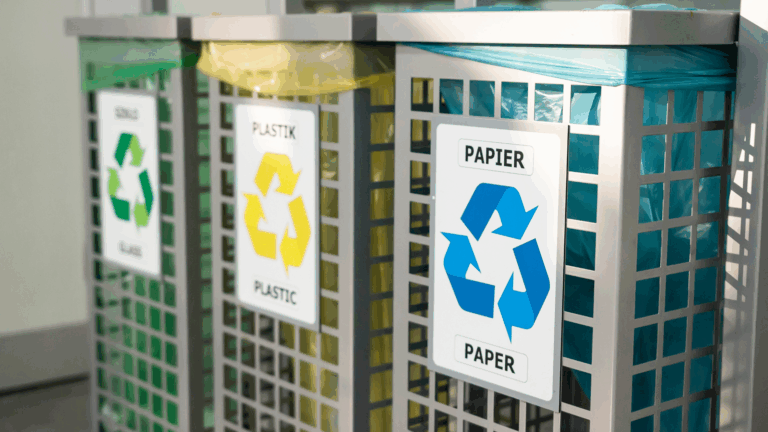
Learning how to manage waste effectively can save your construction business key costs
There are thousands of construction businesses in the UK. And every single one of them has a responsibility to ensure that the waste they create is disposed of responsibly and sustainably. In fact, government figures reveal that construction, demolition, and excavation companies contribute around 62% of the UK’s annual commercial waste, so the need for effective waste management is even greater.
Proper waste management is necessary in order to deal with the millions of tonnes of waste produced by construction companies each year, but it also presents an opportunity for businesses in their field to enhance sustainability, reduce costs, and improve their reputation.
And we’ve got all the information you need. Here’s our comprehensive guide on achieving effective construction waste management, highlighting key practices and benefits.
Why is construction waste management important?
The UK construction sector is responsible for around 120 million tonnes of waste every year, showing just how important waste management is in this industry. There are stringent regulations in place governing waste management, including Waste (England and Wales) Regulations 2011 and the Environmental Protection Act 1990. Managing waste effectively helps ensure construction businesses comply with these legislations.
Proper waste disposal and recycling is also important for reducing the environmental impact of construction projects, leading to a smaller carbon footprint, and saving costs. Reduced material use, lower disposal fees, and potential revenue from recycled materials can all save construction businesses money.
Demonstrating a commitment to sustainability can also enhance your corporate reputation, improving both stakeholder relations and brand perception.

What does effective construction waste management look like?
Adopting effective waste management practices isn’t a tick-box exercise. It requires businesses to cast a critical eye over all aspects of their business and prioritise sustainability at every turn. In doing so, you can enjoy lower costs, greener practices, compliance, and a strong reputation.
Below you’ll find just some of the key best practices for effective construction waste management.
Reducing waste at the source
Opt for modular construction, as prefabricated components can reduce on-site waste. Materials should be used efficiently, with accurate measurement and ordering. Businesses should also adopt lean construction techniques, as streamlined processes reduce material wastage.
Segregation and storage
Proper segregation and storage of waste are crucial for effective recycling and disposal. Separate waste into categories such as inert, non-hazardous, and hazardous. Businesses should also use bins and skips that have been clearly labelled to prevent contamination.
Recycling and reuse
Materials like concrete, metal, wood and plastic are commonly used in construction, and are also commonly recycled. By taking the time and effort to recycle and reuse materials where possible, an organisation can significantly cut down on waste.
Brick, tile, and fixtures can often be reused in the same or other projects.
Engaging with contractors
Choosing the right partners can bolster your business’s sustainability efforts, so choose contractors who are licensed and have a good track record. As part of any ongoing commitment to best practice, you can conduct regular audits of waste management activities to ensure ongoing compliance and efficiency.
Training and awareness
Sustainability is a group effort, so it’s important to educate your workforce on the necessary steps for successful waste management. Provide training on topics like waste segregation, handling, and the importance of cutting down waste, using signage and reminders to encourage best practices in the workplace.
Regulatory compliance
Compliance with UK waste management regulations like Waste (England and Wales) Regulations 2011 and the Environmental Protection Act 1990 is non-negotiable for construction business.

Contact Everflow today!
At Everflow, our goal is to make your utilities simpler. We ensure you get great-value contracts that are tailored to your needs and easy to manage.


